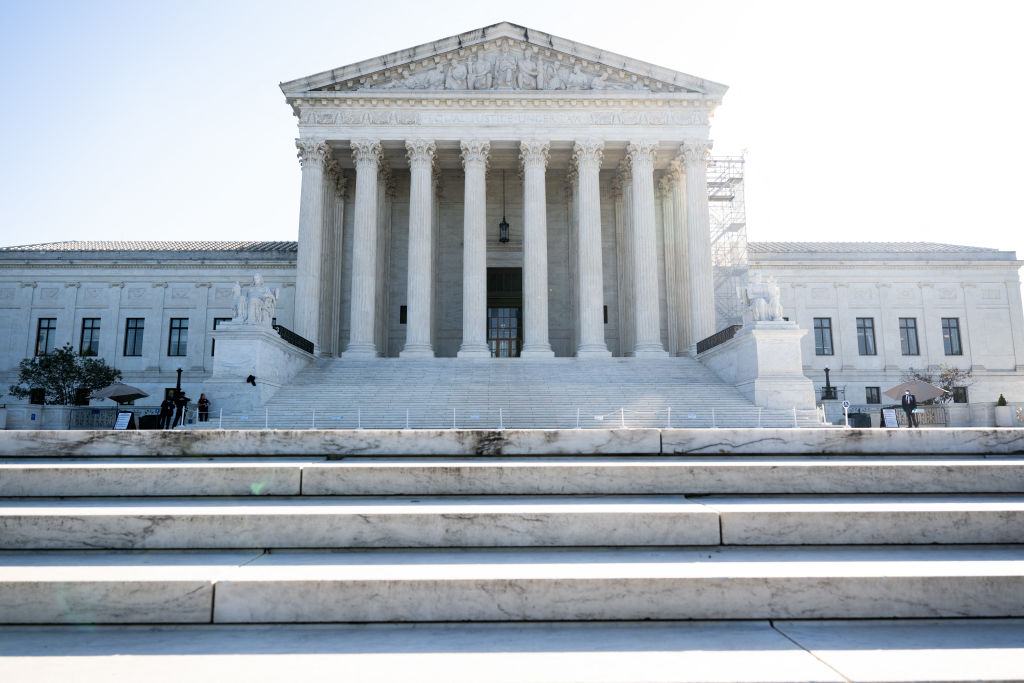Court dubious of ICE contractor’s right to immediate appeal


The argument on Monday in The GEO Group v. Menocal suggested that this is shaping up to be a rough term for government contractors. As I wrote last week, the argument in Hencely v. Fluor Corporation did not appear to go well for the contractor, and the justices seemed even more clearcut in their lack of sympathy for the contractor’s position in GEO.
The GEO case involves claims by ICE detainees against a contractor operating an ICE detention facility, and the question for the justices is whether the contractor gets an immediate appeal when a district court rejects the contractor’s argument that the detainees have no claims against the contractor if the contractor is simply following ICE’s instructions.
The dominant position of the justices was that whatever protection the contractor might have, it is simply a defense, not the kind of immunity from suit that would justify an immediate appeal. Indeed, the opening question of the argument set a tone that did not change much as the hour wound down: Justice Clarence Thomas politely asked Dominic Draye, counsel for the contractor (GEO), if he could point to “the language in [the relevant Supreme Court precedent] that indicates … this immunity from suit.” When Draye admitted that the pertinent precedent, Yearsley v. W.A. Ross Construction, doesn’t have any such language, Justice Ketanji Brown Jackson interjected to ask why “isn’t Yearsley better understood as a defense than an immunity?”
Justice Elena Kagan took the tack of parsing Yearsley more closely, and in particular the factors it suggests for determining when the contractor should be able to shift responsibility to the government and thus claim immunity. In particular, she wanted to know whether the contractor is claiming that “‘I satisfied the Yearsleycriteria and that shows that I did nothing wrong?’ Or [that] ‘I satisfied the Yearsley criteria, and that means that even though I did something wrong, I am, in fact, protected from legal consequences?’” When Draye said his client was arguing that it should be protected even if it did something wrong, Kagan commented that “the rationale of Yearsley” is that “I’m following the government’s instructions and the government’s instructions are lawful, so, obviously, everything I did was lawful too.” At which point Jackson chimed in to emphasize that Draye’s client “wouldn’t get the Yearsley defense [if the instructions were unlawful], because … the government would have to have the authority to issue the instructions, and to the extent the instructions violated the law, they wouldn’t be authorized.”
Justice Brett Kavanaugh also was skeptical, asking “[w]hy is the government on the other side from you []? I mean, that seems like a big … hurdle.” For Kavanaugh, it didn’t ring true for Draye to argue that a vote against the contractor “will thwart the implementation … of all [those] government programs? I’m just not seeing that. And because [the federal government is] on the other side, it casts doubt on your assertion that all these programs are going to be [adversely affected if we rule against you].”
It would be an exaggeration, at least a slight one, to say that the argument was unremittingly hostile to the contractor, as there was a substantial passage in its favor during the argument of Jennifer Bennett (representing the detainees). At that point, Justice Samuel Alito pressed insistently the argument that if Bennett’s clients had sued “ICE and specific ICE officials,” they “could raise sovereign immunity; they could raise qualified immunity … And if the district court denied any of those, then they could get an interlocutory appeal. So why shouldn’t the rule be the same for GEO?”
For Alito, it seemed self-evident that the same protections should be available to the contractor as were available to ICE and its own employees. But if other justices share that view, they certainly kept it to themselves. It wouldn’t surprise me if Alito took the time to write in support of the GEO here, but it would surprise me if a strong majority doesn’t reject the contractor’s claim.
Posted in Court News, Featured, Merits Cases
Cases: The GEO Group, Inc. v. Menocal